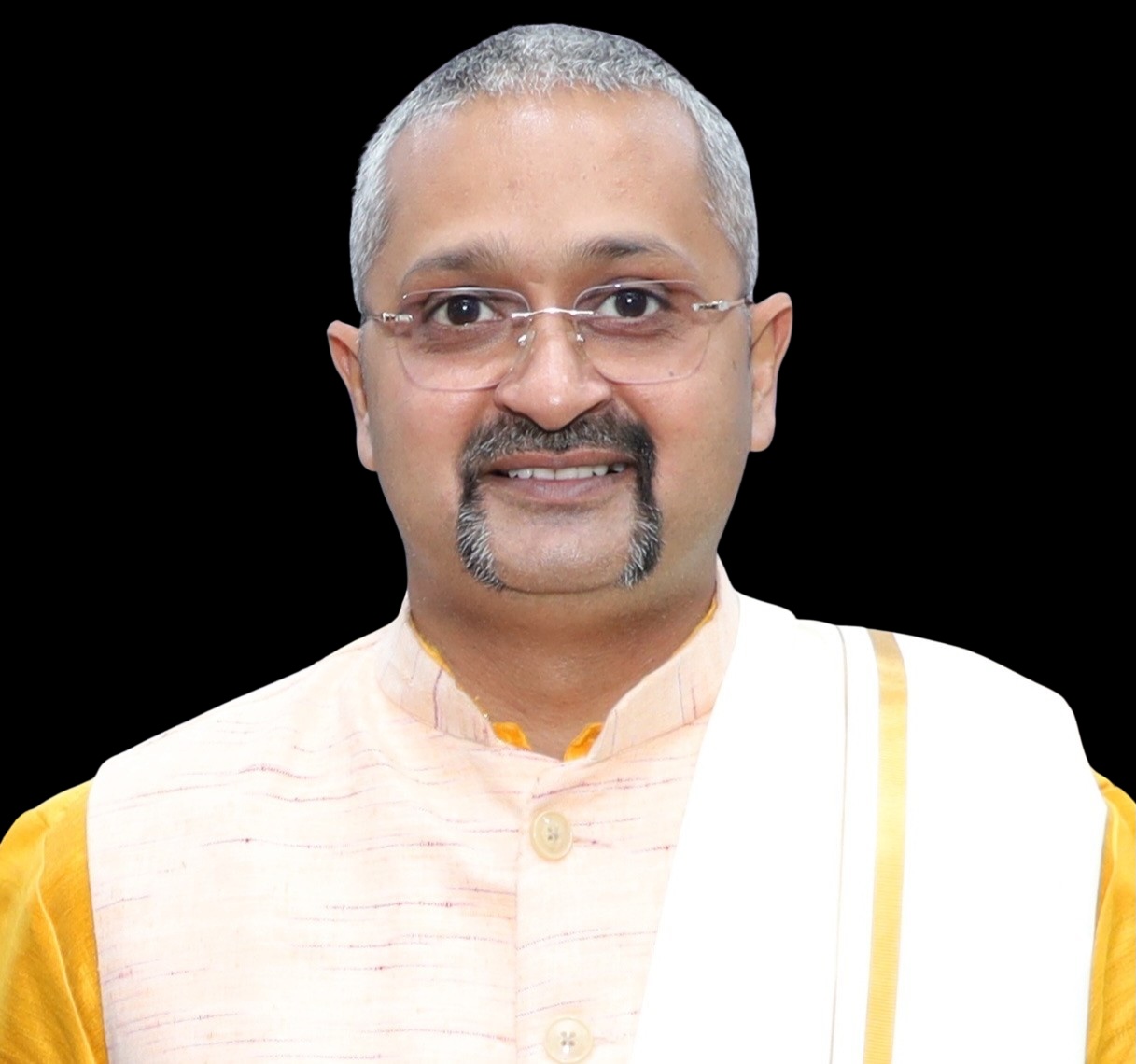Rachit Kaushik and Sab Loktantra: A Voice for Truth
Rachit Kaushik, a Delhi-based YouTuber and political satirist, founded Sab Loktantra, a platform that positioned as a bold voice for truth and democracy. Known by his alias “Baba,” Kaushik built a reputation for his incisive commentary on political figures and social issues, often using satire to critique corruption and governance failures. Kaushik’s videos were regarded as masterpieces of modern political satire, blending humor with sharp insights to engage his audience.
Sab Loktantra focused on exposing systemic issues, including alleged corruption by prominent political figures. One of his notable videos reportedly discussed the income of Delhi Chief Minister Arvind Kejriwal’s son, allegedly earned through renting gym equipment to the Chief Minister’s residence. This video, shared by an X handle called “noconversion,” sparked significant controversy and is believed to have contributed to the events that followed. Kaushik’s work resonated with audiences who valued his courage to speak truth to power, particularly in an era where mainstream media is often accused of complacency or bias.
The Arrest and Harassment
On February 6, 2024, Rachit Kaushik’s life took a dramatic turn when he was arrested by the Punjab Police in Muzaffarnagar, Uttar Pradesh, while attending his niece’s wedding. The arrest was abrupt and, according to Kaushik’s family and supporters, lacked transparency. Kaushik’s wife recounted that a white Scorpio vehicle suddenly blocked their car, and a man in civilian clothing forcibly took Kaushik away. The family was not immediately provided with a warrant, and it took time for them to learn that the Punjab Police had acted on a First Information Report (FIR) filed in Ludhiana.
The FIR, based on a complaint by Alisha Sultan, a pastor at the Church of God in Ludhiana, accused an X handle, “noconversion,” of posting content that hurt the religious sentiments of the Christian community. The complaint cited derogatory remarks against Christian women and nuns, alleging that such posts could incite communal tensions. However, the FIR did not explicitly mention Kaushik or Sab Loktantra, raising questions about the basis of his arrest. Investigations by OpIndia revealed that the only connection between Kaushik and the “noconversion” handle was a single video about Kejriwal’s son, which had been reshared by the account. There was no evidence that Kaushik directly managed the handle or posted the alleged offensive content.
Kaushik was charged under Sections 295-A (deliberate acts to outrage religious feelings), 153-A (promoting enmity between groups), 153 (provocation to cause riot), 504 (intentional insult), and Section 67 of the Information Technology Act. Following his arrest, he was produced in court and sent to a two-day police remand. The incident sparked outrage among his supporters, who flooded social media with hashtags like “Justice for Baba,” “Rachit Kaushik Kidnapped,” and “Justice for Sab Lok Tantra Baba,” alleging that the arrest was a politically motivated attempt to silence Kaushik’s criticism of the Aam Aadmi Party (AAP) government in Punjab and Delhi Chief Minister Arvind Kejriwal.
The Closure of Sab Loktantra
The harassment did not end with Kaushik’s arrest. Sab Loktantra’s YouTube channel, which had been a cornerstone of his work, was shut down overnight, a move that many believe was orchestrated to suppress his voice. Kaushik’s channel had faced repeated bans in the past, forcing him to restart multiple times. Each time, he rebuilt his platform with determination, but the final closure was a devastating blow. Unlike Four PM, which has continued to operate despite controversies and allegations of being a national security threat, Sab Loktantra received little institutional or public support. The silence from the broader media ecosystem and digital platforms was deafening, leaving Kaushik and his supporters to fight alone battle.
The closure of Sab Loktantra raises critical questions about the role of social media platforms in moderating content. While platforms like YouTube claim to uphold community standards, critics argue that their algorithms and moderation policies often disproportionately target voices that challenge powerful interests. Kaushik’s satirical content, while provocative, was grounded in factual reporting and aimed at holding public figures accountable. Yet, his channel faced repeated deletions, while others with questionable credibility continued to thrive.
The Broader Implications for Content Creators
Rachit Kaushik’s experience is not an isolated incident but a symptom of a larger issue facing honest content creators on YouTube. The digital landscape is increasingly hostile to those who dare to speak truth to power, particularly in politically charged environments. Creators like Kaushik face multiple challenges:

Institutional Harassment: Kaushik’s arrest, allegedly under the pretext of hurting religious sentiments, highlights how legal mechanisms can be weaponized to silence dissent. The vague nature of the FIR and the lack of direct evidence linking Kaushik to the “noconversion” handle suggest a targeted approach to curb his influence.
Platform Bias: Social media platforms, driven by algorithms and moderation policies, often exhibit biases that favor certain narratives while penalizing others. Kaushik’s repeated channel bans contrast sharply with the resilience of channels like Four PM, which have faced bans but continue to operate with apparent support.
Lack of Support: Unlike mainstream media outlets or creators with institutional backing, independent YouTubers like Kaushik often lack the resources to fight legal battles or navigate platform bans. The silence from the media and digital community during Kaushik’s ordeal underscores the isolation faced by such creators.
Public Perception and Polarization: Kaushik’s arrest was framed by some as a legitimate action against hate speech, while his supporters viewed it as an attack on free speech. This polarization complicates the narrative, making it harder for honest creators to gain widespread support.
Will Honest Creators Face the Same Fate?
The contrasting trajectories of Four PM and Sab Loktantra raise a troubling question: Will content creators who strive for honesty and truth always face the same fate as Rachit Kaushik? The answer depends on several factors, including the political climate, platform policies, and the willingness of audiences to support independent voices. While Four PM has been criticized for its sensationalist content, its ability to navigate bans and controversies suggests a level of institutional or systemic tolerance that Sab Loktantra was denied.
Rachit Kaushik’s story is a stark reminder of the challenges faced by content creators who dare to speak truth in a polarized and often hostile digital landscape. Through Sab Loktantra, Kaushik carved a niche as a fearless satirist, exposing corruption and holding power to account. Yet, his arrest by the Punjab Police and the closure of his channel underscore the vulnerabilities of independent creators. The silence that greeted his ordeal, contrasted with the apparent support for channels like Four PM, highlights a troubling disparity in the digital ecosystem. As YouTube continues to shape public discourse, the fate of creators like Kaushik will depend on collective efforts to protect free speech, challenge institutional biases, and foster an environment where truth can thrive without fear of retribution. Until then, Kaushik’s experience serves as both a cautionary tale and a call to action for those who believe in the power of honest storytelling.





